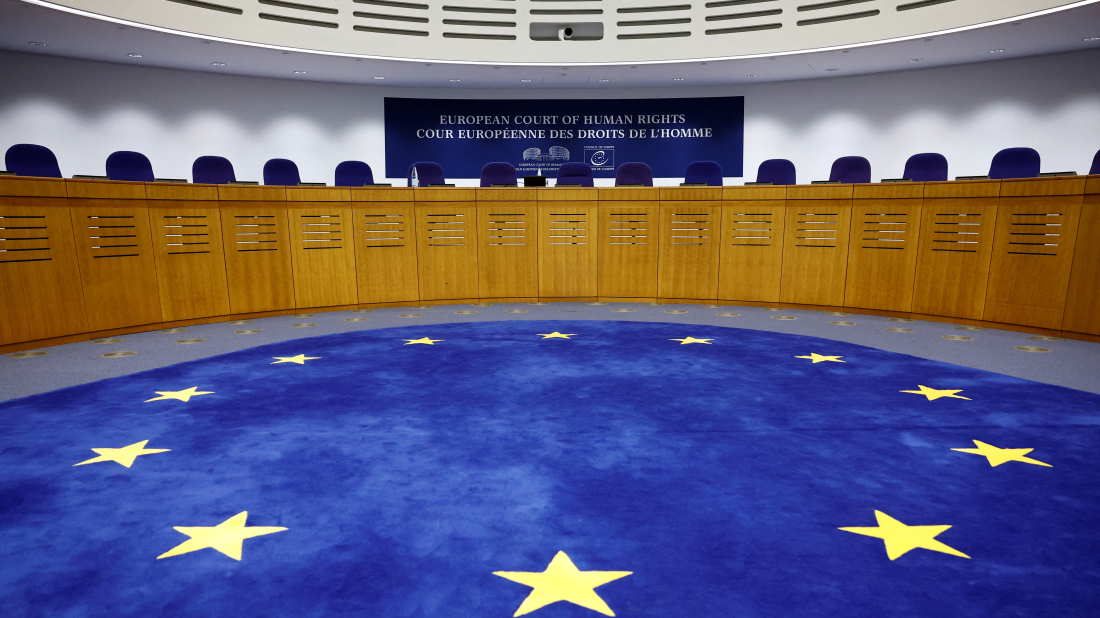Iran designates EU naval and air forces as ‘terrorist entities’ in reciprocal move
Iran announced on Saturday that it has designated the naval and air forces of European Union member states as “terrorist entities” in a reciprocal...

The European Court of Human Rights has ordered Russia to pay €253 million in damages to Georgian citizens, a diplomatic victory that contrasts Tbilisi’s recent tensions within the Council of Europe.
The court found Russia responsible for mass detentions, attacks, and harassment of Georgian civilians in the occupied territories, reaffirming Georgia’s sovereignty and the international recognition of the consequences of Russian control.
The European Court of Human Rights (ECHR) in Strasbourg in its ruling ordered Moscow to pay €253,018,000 to more than 29,000 Georgian citizens affected by ongoing human rights violations in the occupied regions of Abkhazia and South Ossetia.
It marks the fourth successful case brought by Tbilisi against Moscow before international courts.
Prime Minister Irakli Kobakhidze welcomed the decision, saying it reflects Georgia’s principled stance and consistent work in international legal institutions.
“Every time it comes to protecting our national interests, our government has acted with a principled approach. We have won all cases in both Strasbourg and The Hague because of that consistency,” the Prime Minister told reporters.
Kobakhidze thanked the Ministry of Justice and the legal teams involved, describing the ruling as another confirmation of Russia’s guilt for rights violations during and after the 2008 war.
Yet this legal triumph comes at a time when Georgia’s relations with European institutions remain uneasy.
In January 2025, the Parliamentary Assembly of the Council of Europe (PACE) left Georgia’s delegation credentials conditional, citing concerns over democratic backsliding, civil society restrictions, and the controversial “foreign influence” legislation.
Rather than accept the conditions, Georgia’s ruling party withdrew its delegation from PACE, accusing the Assembly of “political pressure.”
While Georgia remains a member of the Council of Europe, its absence from PACE has been widely viewed as a setback in its engagement with European partners.
In Strasbourg’s courtroom, Georgia is recognized as a victim of occupation and rights abuses yet in Strasbourg’s parliament, its own commitment to democratic values is being questioned.
Analysts say this dual reality captures the complexity of Georgia’s current position: a state that continues to achieve legal vindication abroad while facing political scrutiny at home.
As Georgia celebrates its latest judicial victory, the broader challenge remains translating courtroom success into renewed trust and stronger dialogue with Europe’s political institutions.
Quentin Griffiths, co-founder of online fashion retailer ASOS, has died in Pattaya, Thailand, after falling from the 17th floor of a condominium on 9 February, Thai police confirmed.
At least four people have died and 17 others were injured after a liquid gas truck overturned and exploded in Santiago, Chile’s capital, authorities confirmed on Thursday. Police said the driver was among those killed.
Cubans are increasingly turning to solar power to keep businesses operating and basic household appliances running during prolonged electricity cuts, as fuel shortages make diesel generators and other temporary solutions more difficult and costly to maintain.
Ukraine’s National Paralympic Committee has announced it will boycott the opening ceremony of the Milano Cortina 2026 Paralympics in Verona on 6 March, citing the International Paralympic Committee’s decision to allow some Russian and Belarusian athletes to compete under their national flags.
Eric Dane, the actor best known for his roles in 'Grey’s Anatomy' and 'Euphoria', died on Thursday, at the age of 53 after a battle with amyotrophic lateral sclerosis (ALS). His family confirmed his death after what they described as a “courageous battle” with ALS.
Iran announced on Saturday that it has designated the naval and air forces of European Union member states as “terrorist entities” in a reciprocal move after the EU blacklisted the Islamic Revolutionary Guard Corps (IRGC).
At least 10 people were killed and 50 wounded in Israeli strikes in Lebanon's Bekaa Valley on Friday (20 February), two security sources told Reuters, after the Israeli military said it had targeted Hezbollah sites in the Baalbek area.
Iran’s Foreign Minister Abbas Araghchi on Saturday (21 February) dismissed U.S. claims that 32,000 civilians were killed during protests in Iran. He said Tehran has already released official figures and called for evidence to support any higher estimates.
Uzbekistan's president Shavkat Mirziyoyev has held a series of high-level meetings in the U.S. aimed at strengthening bilateral economic and strategic ties between the two countries.
Türkiye has signalled readiness to contribute to a proposed Gaza stabilisation force during the inaugural Board of Peace meeting on Thursday (19 February), but according to former Turkish diplomat Mehmet Öğütçü, the decisive factor will be whether Israel and the United States agree on Ankara’s role.
You can download the AnewZ application from Play Store and the App Store.

What is your opinion on this topic?
Leave the first comment